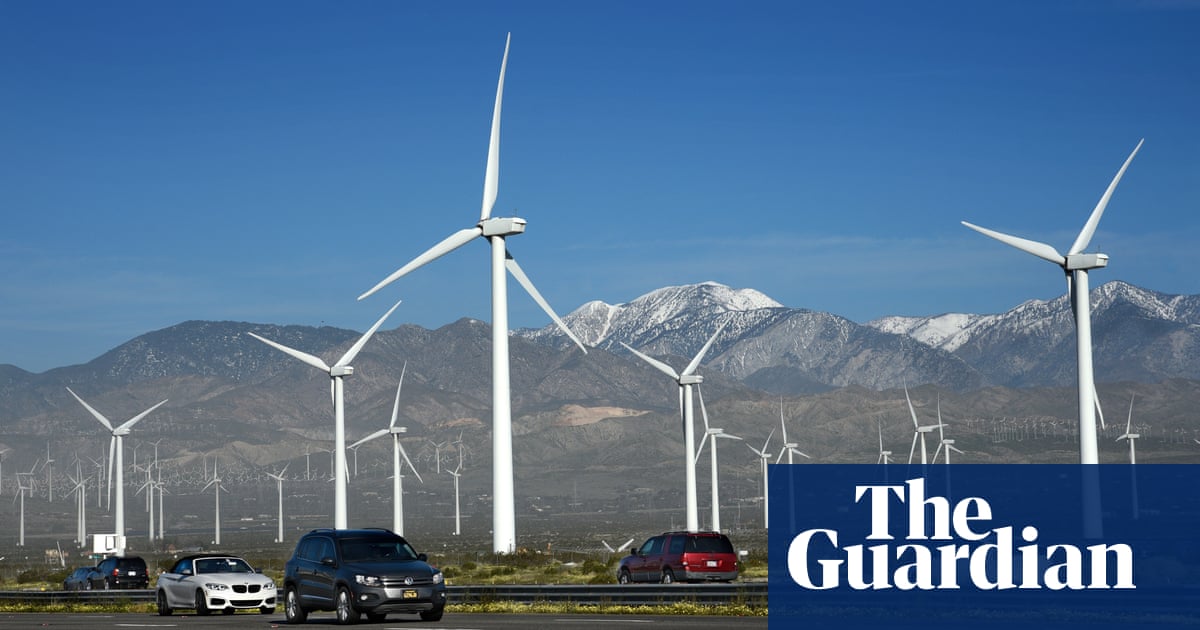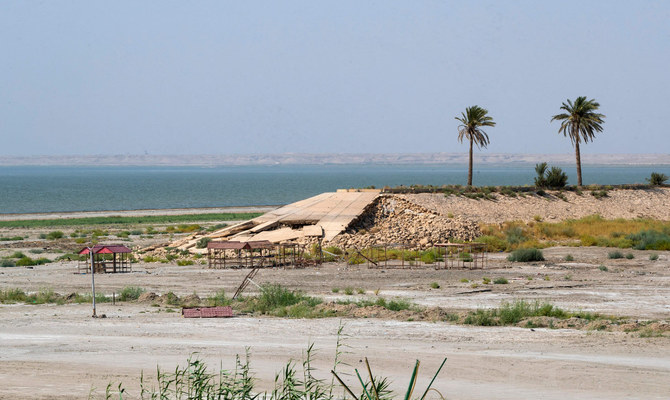
New agreement will support Iraq in dealing with energy transition and climate-change mitigation
Studies suggest Iraq has the potential to generate enough solar power to meet 10 percent of its power demand by 2028
DUBAI: Iraq is one of several Arab countries expected to benefit from a new partnership between the Cairo-based Regional Center for Renewable Energy and Energy Efficiency (RCREEE) and the United Nations Development Program (UNDP). The agreement, titled “Catalyzing the use of solar photovoltaic energy in Iraq,” will support the country (which has a rank of 13 out of 178 in the latest Fragile States Index) in dealing with energy transition and climate-change mitigation.
The agreement also aims to remove the barriers to private sector engagement in Iraq’s solar power industry and reduce the energy sector’s overwhelming dependence on hydrocarbon sources.
As of 2017, Iraq’s power-generation capacity — mainly based on fossil fuels — stood at around 11.3 gigawatts (GW). This fell far short of total demand, estimated at 17 GW, and underscored the need for finding alternative energy sources in a country where power cuts are one of the issues provoking protests.
Independent studies suggest Iraq has the potential to generate more than 5 GW of photovoltaic (PV) solar power, besides an estimated 1 GW of wind energy and 200 megawatts (MW) of bioenergy. Full utilization of this potential would be enough to meet 10 percent of Iraq’s power demand by 2028, according to reports.
“The importance of alternative energy sources to Iraq is clear,” said Cyril Widdershoven, director at Verocy, a Dutch consultancy advising on investments, energy and infrastructure risks and opportunities in the region.
“Iraq has been facing major challenges arising from an increased demand for electricity, shortage of new electricity grids and the need to find the right partners to set up a renewable energy sector that is viable and functional.”
In what represented Iraq’s first attempt to diversify its energy mix, seven PV projects in different governorates with a combined capacity of 755 MW were announced in May last year.
In November, a government official said Baghdad is planning a second 750 MW solar tender, adding that the procurement rounds would be finalized within two years.
Widdershoven says Iraq needs to set up additional energy supply routes to counter the dependence on oil and gas for power generation, which is both depriving the country of precious export income and having a negative environmental impact.
“Any barrel of oil or cubic meter of gas that can be used for other purposes, such as petrochemicals or exports, will increase the revenue base of the government, especially since electricity is priced extremely low thanks to government subsidies,” he said.
Innovation
The newly signed agreement extends an existing collaboration between the RCREEE and the UNDP that began in 2017 with a view to supporting Iraq’s renewable energy sector.
It identifies new activities and areas of cooperation, taking into consideration the results of previous work and data collected by the UNDP.
The RCREEE’s analysis will cover the activities of national and international actors in Iraq, as well as private sector capabilities in solar power technology development, innovation and servicing.
The analysis is aimed at removing barriers to private players’ engagement in Iraq’s solar power industry by enlarging their understanding of the sector and enhancing their expertise while developing local capacities.
To this end, a set of programs, training modules and products will be introduced to all the parties concerned.
“It is noteworthy to mention that the Iraqi power sector is heavily dependent on hydrocarbon-fueled power plants,” the RCREEE said in a news release. “Iraq has been suffering from political unrest during the past years, which has led to energy deficiency and a critical shortage of electricity supply against the increasing electricity demand.
“Nevertheless, it has abundant solar resources, making solar energy a predictable energy source with relatively low fluctuations compared to other regions.”
Numerous initiatives have been launched over the years by international donors and financial institutions to promote solar energy in the MENA countries, according to Harry Istepanian, a Washington-based independent power and water consultant with 30 years’ experience in the region.
However, not much has materialized from these proposals in Iraq due to the upheavals caused by the emergence of Daesh and the slow pace of the government’s efforts to attract serious foreign investments, he said.
“Priority was given by the government to the financing of fossil-fueled power generation to meet the increasing demand for electricity, amounting to nearly 2,000 megawatts each year,” said Istepanian, who is a senior fellow at the Iraq Energy Institute in the UK.
“This is despite the fact that the levelized cost of energy for solar projects is becoming competitive compared with conventional power generation and Iraq’s slow progress in implementing gas-to-power programs that utilize flared gas.”
Istepanian suggests two ways in which solar power can make a difference to Iraq’s energy situation: Utility-scale PV units would lead to a reduction in burning of oil and gas, while rooftop solar panels would help individual households reduce their own dependence on “expensive and polluting neighborhood generators.”
Overall, use of PVs can also reduce technical and commercial losses of Iraq’s electricity sector, which he said are soaring every year and expected to reach 62 percent by 2025.
“Although Iraq has huge solar-energy potential, PV utilization by the country is limited due to a lack of effective government policies and incentives that would encourage investors to develop utility-scale projects or financially assist households to install rooftop solar panels,” Istepanian told Arab News.
“Many attempts were made by the private sector to enter the market, but the government was reluctant to accept these offers due to high per kilowatt-hour rates which, in some cases, were four or five times higher than those of neighboring Gulf countries.
Inflated prices
Istepanian ranks insecurity and economic volatility high on the list of reasons for Iraq’s inflated power prices. “The rules governing the renewable energy sector and public-private partnership are among many risks that make foreign investors approach the market with caution,” he told Arab News.
“The lack of government subsidies and bank loans for households to cover the high initial cost of rooftop PV panels are among many barriers to installing them.
“The government needs to have clear policies for feed-in tariff, for example, to encourage the public to use PV instead of heavily polluting neighborhood private generators.”
Istepanian welcomed an announcement by the Iraqi government to install solar panels for 3,000 low-income houses, saying that this could boost solar energy’s appeal in the future.
“The Ministry of Electricity has an ambitious plan to generate 20 percent of future electricity demand from renewable energy,” he said.
“The plan is to add between 500 to 1,000 MW annually. (But) the government needs to do more on legislation and regulation to foster its plan.
“The southern and western parts of Iraq have huge potential for PV projects to meet the increasing demand for electricity, but Iraq’s renewable energy resources are untapped. Many Gulf investors are looking forward to the right deals.”
Widdershoven does not expect solar power to make a real difference to Iraq’s energy scenario in the near term, but thinks the importance of substituting renewables for fossil fuels cannot be overstated.
“In the coming years, due to its economic and social instability, Iraq’s success will be minimal, especially as long as Iran is playing a dominant role in the country’s affairs,” he told Arab News.
“Nevertheless, Iraq should be spreading the risk by opening up power projects beyond Russian and Asian bidders to Western companies and investors.”












